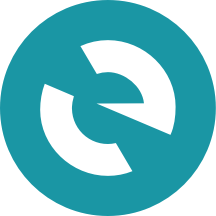MEW FAQ articles are based on real user questions, edited for privacy, clarity, and flow.
Every time I say my coins are in my wallet or on my Trezor or on my account, my crypto-savvy friends jump in to inform me that my coins are not actually there, but rather on the blockchain. What does that mean? Where are my assets, actually?
Even as wallet service providers and purveyors of blockchain knowledge, we can relate to your plight all too well. In general, nomenclature in the crypto space can be baffling. We would like to simplify matters by using words from the familiar world of traditional finance, but we are also concerned about communicating misleading or plainly wrong information to users.
For example, we don’t want to say that your assets are in your wallet or in your Trezor, because this implies your assets will be lost if you lose your hardware wallet or your wallet service provider goes out of business. In fact, that’s not the case.
Once you have your seed phrase (or private key), you can use any compatible web, mobile, or hardware wallet to restore access to those assets. In other words, the coins are always and only on the blockchain, and you can manage them by accessing through a variety of interfaces.
Another example: we don’t want to say that your assets are on an account, because that implies similarity to a bank account. However, as we and other non-custodial wallets in the space say over and over, we are NOT a bank.
That means we can’t provide some of the services that banks can, like restoring passwords, freezing transactions, or managing accounts. Because your assets are on the blockchain and subject to the rules of the blockchain, there is nothing a service provider like MEW can do about the fact that all transactions are final and irreversible, or that you need to have ETH for gas on Ethereum.
Ok, so assets are on the blockchain. You always have access to them. That’s good.
But what does that mean? Where are your coins, exactly?
Where are they when you own them, where are they when you give them to someone else, and where are they when you still own them but use an exchange to trade them? And if they are not in a wallet or on an exchange, how do you define their current location?
After centuries of using physical money, from seashells to gold pieces to dollar bills, it’s difficult to grasp that cryptocurrency never moves. Rather, the ownership of tokens is reassigned when they are transferred between addresses.
Think of it as real estate. The property doesn’t move, but a verified document – a smart contract in Ethereum’s case – indicates ownership. When you send this property to someone, what you are actually doing is reassigning ownership. You can check the current state of the blockchain (who owns what at this moment) by going to a blockchain explorer like Etherscan, and searching for addresses and transaction hashes.
Why does all this nuance matter, in the end? Because we want to say what we mean and mean what we say in crypto, without giving the wrong expectations, bad or good. With time, better word choices are sure to emerge as developers and users come up with more intuitive ways of describing the blockchain technology.
Helping you make sense of the crypto-speak,
MEW

